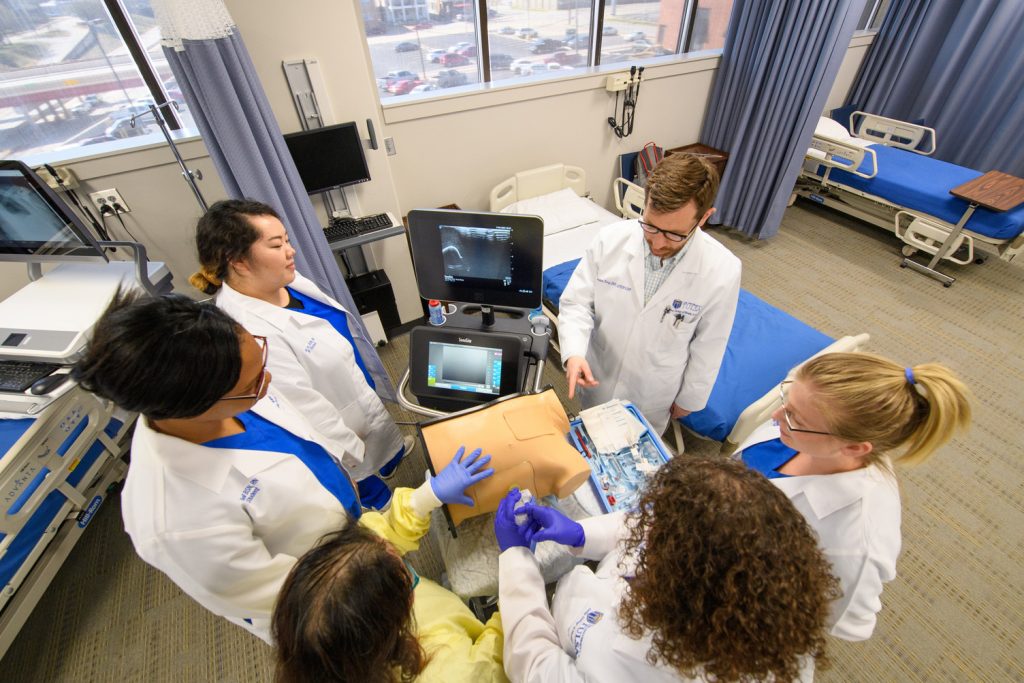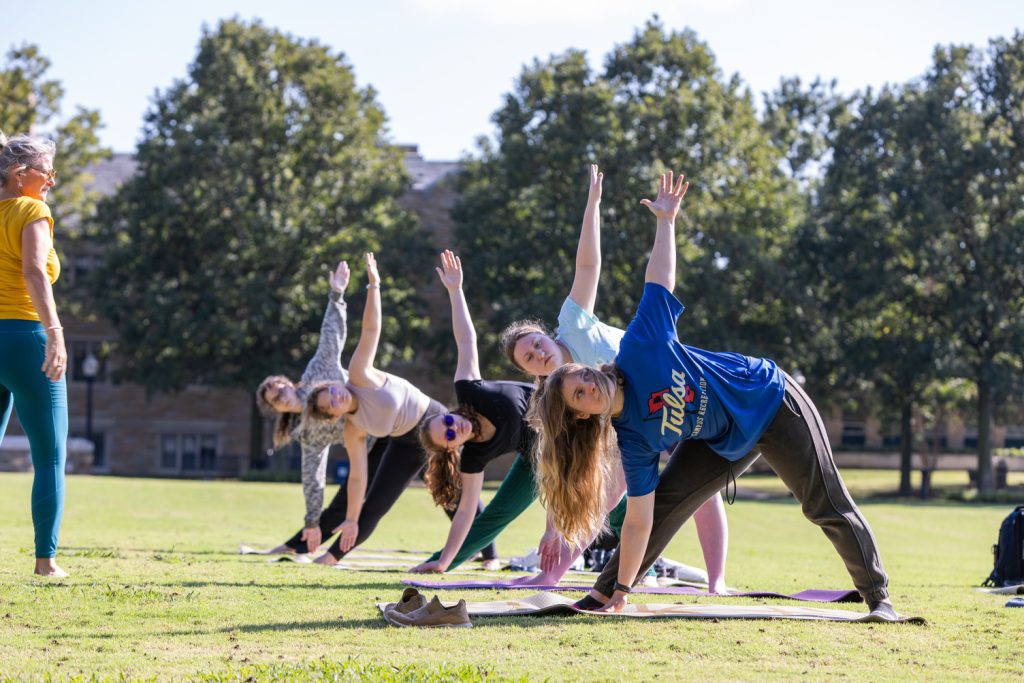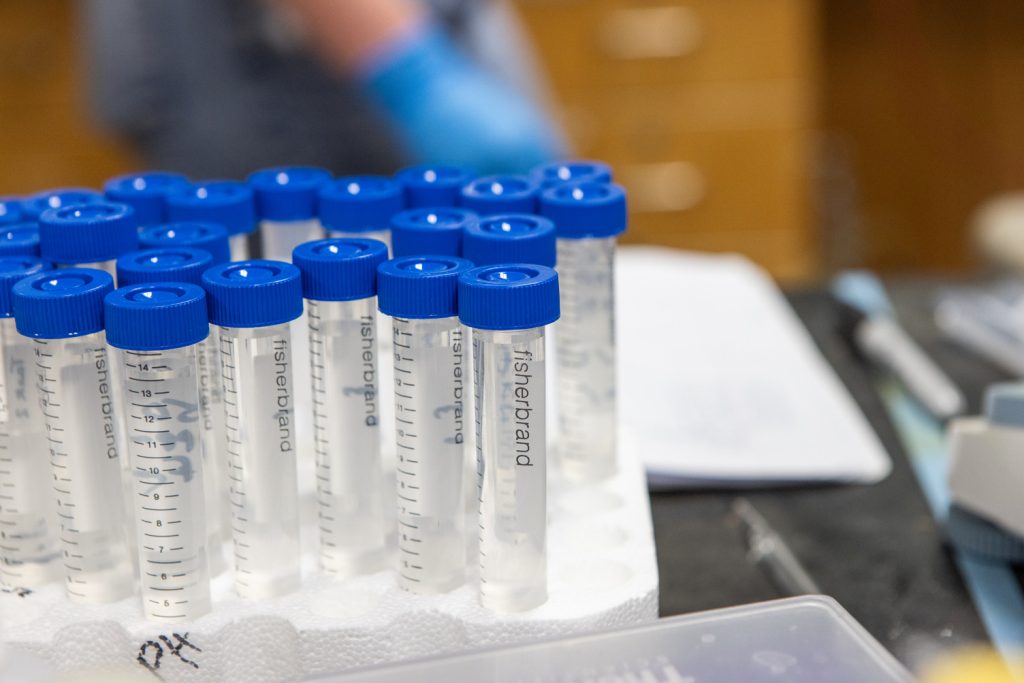
Ensuring healthy lives and promoting well-being for all, irrespective of age, gender, or socioeconomic status.
This goal envisions a world where everyone can enjoy good health and well-being, irrespective of their age, gender, or socio-economic background. It recognizes that health is not just the absence of disease but a state of complete physical, mental, and social well-being. Achieving Sustainable Development Goal 3 is not only a matter of human rights but is also essential for sustainable development, as good health is a prerequisite for productive and fulfilling lives.
The University of Tulsa aims to contribute to Sustainable Development Goal 3 in several ways:
- Health Education: Offer a variety of health-related academic programs and courses. These programs can prepare students to work in healthcare professions, conduct health research, and promote health education and awareness.
- Oxley College of Health Sciences: Play a vital role in training healthcare professionals, nurses, physicians, and researchers who contribute to better healthcare outcomes.
- Research: Conduct health-related research, including studies on disease prevention, treatment, and healthcare delivery. Such research can lead to advancements in medical science and the development of innovative healthcare solutions.
- Wellness Programs: Promote wellness on campus by offering fitness programs, mental health support services, and initiatives that encourage healthy living among students and faculty.


- Community Engagement: Collaborate with local healthcare providers, hospitals, and clinics to enhance healthcare access in the surrounding community. Such partnerships can also create opportunities for experiential learning for students in healthcare-related fields.
- Health Advocacy: Engage in health advocacy efforts, raising awareness about health issues and supporting public health campaigns. This can include promoting vaccination, mental health awareness, and healthy lifestyle choices.
- Health Equity and Diversity: Prioritize diversity and inclusion in healthcare education and services, ensuring that healthcare professionals are culturally competent and able to address the unique needs of diverse populations.
- Emergency Preparedness: Contribute to emergency preparedness and response efforts, ensuring that the campus and the community are well-equipped to handle health emergencies.
- Sustainable Health Practices: Promote sustainability in healthcare by incorporating eco-friendly practices in healthcare facilities and research, addressing the intersection of health and the environment.
- Global Health Initiatives: Engage in global health projects, research, and partnerships aimed at addressing international health challenges, such as disease outbreaks and global health disparities.
The university’s efforts may evolve over time as it seeks to address emerging health challenges and promote good health and well-being for its students and the broader community.

SDG 3 Targets
Collaborate with local, national, or global health institutions to improve health and well-being outcomes
Award at least 50 degrees in the Health-Related profession
70+
Offer counseling, psychological, and clinical services to all students, faculty, and staff
Research
70+
Total Scholars
435
Total Publications
News
- Stuart Price (J.D. ’82) moved to Tulsa in the late 1970s to attend The University of Tulsa’s College of Law, discovering after graduation that his calling was actually as an […]
- University of Tulsa junior Tulsi Patel has been named one of 40 female college students selected to receive a CREW Network Foundation Grant for the 2024-25 academic year. This award […]
- This opinion column was written by Andrew Morin and was first published in the Tulsa World. Morin is a research assistant professor in the School of Cyber Studies at The […]
- Senior Brittany Banh, who serves as president of the Student Alliance for Violence Education, is the 2024 recipient of The University of Tulsa’s Marcy Lawless Service Award.
- The Department of Psychology and The University of Tulsa Institute of Trauma, Adversity, and Injustice recently invited alumna Kristi Pruiksma, associate professor in the Department of Psychiatry and Behavioral Sciences at […]
- The James Beard Foundation has announced its 2024 Media Award nominees, and The University of Tulsa’s Switchyard magazine has received two nominations in the categories of Food Coverage in a […]
- The University of Tulsa’s College of Law recently hosted a Sustainable Energy and Resource Law (SERL) conversation about energy on tribal lands. TU Associate Professor of Law Warigia Bowman, director […]
- Launched in spring 2023, The University of Tulsa’s Center for Energy Studies is taking a leading role in the interdisciplinary study, teaching, and public communication of the complex economic and […]
- University of Tulsa alumnus Matthew Crall (MS ’17, PhD ’19) is one of the scientists currently breaking new ground in CCS technology.
- In a significant advancement for energy transition research, TU Professors Cem Sarica and Eduardo Pereyra were awarded a $1.25 million grant from the Department of Energy to spearhead innovative studies […]